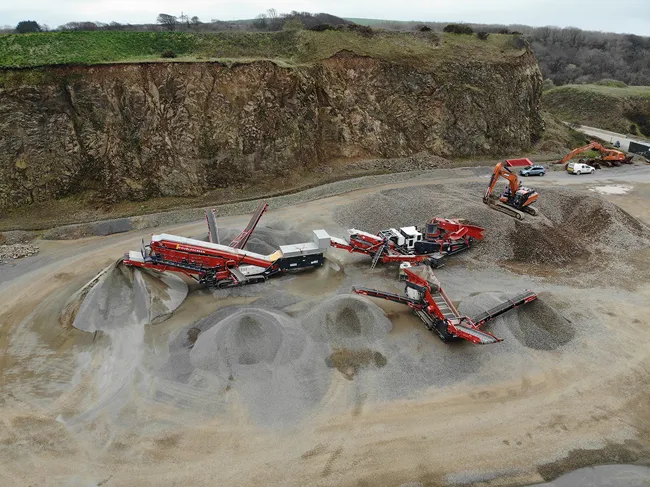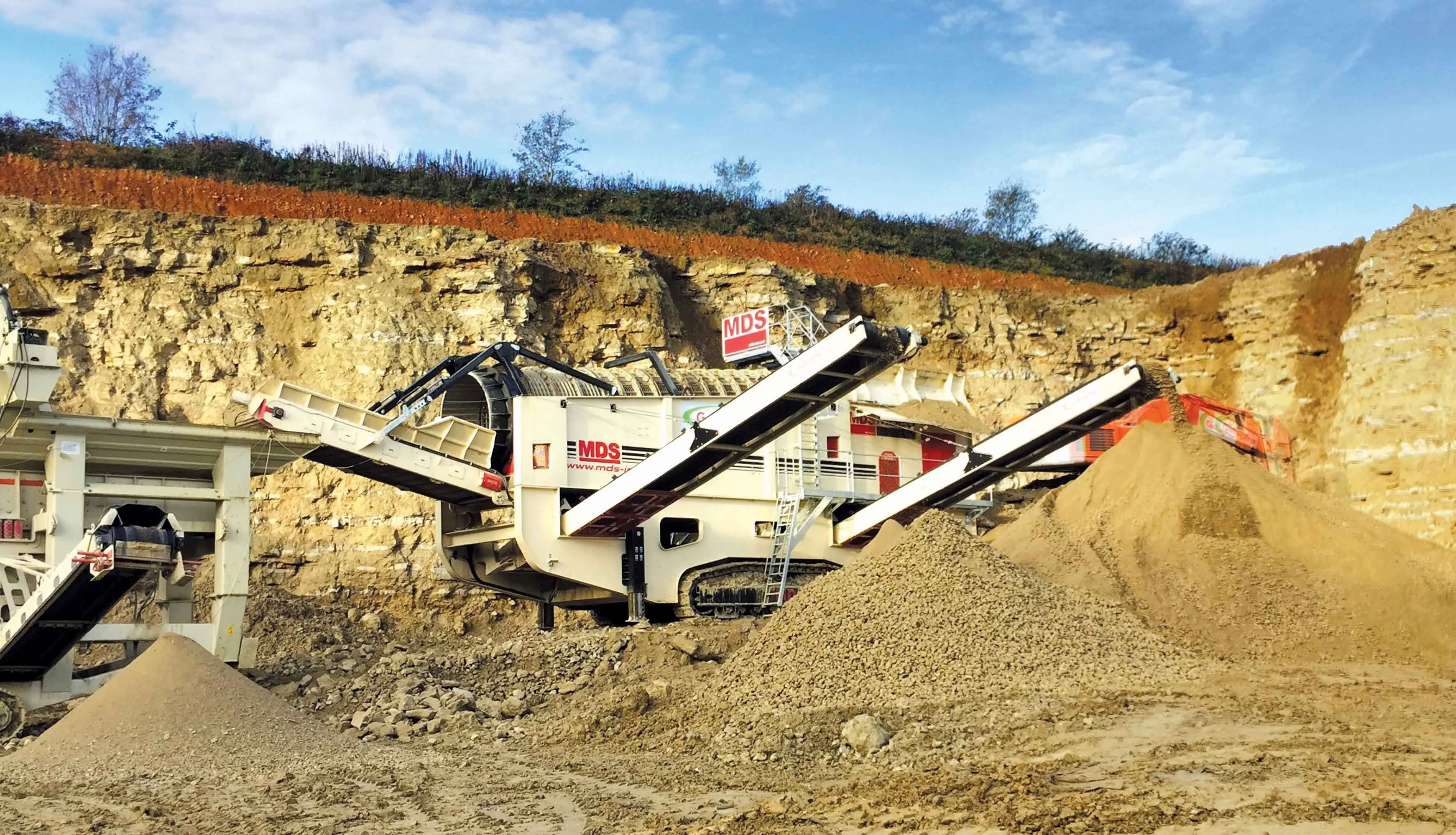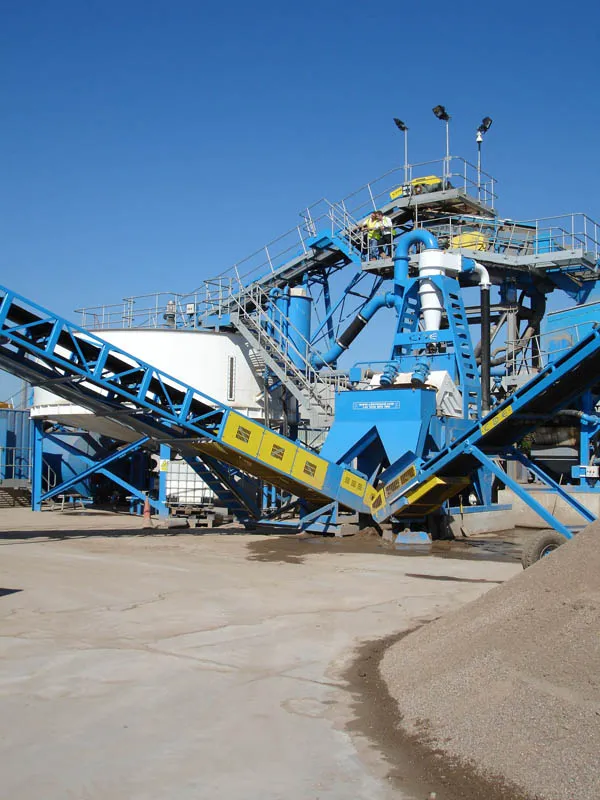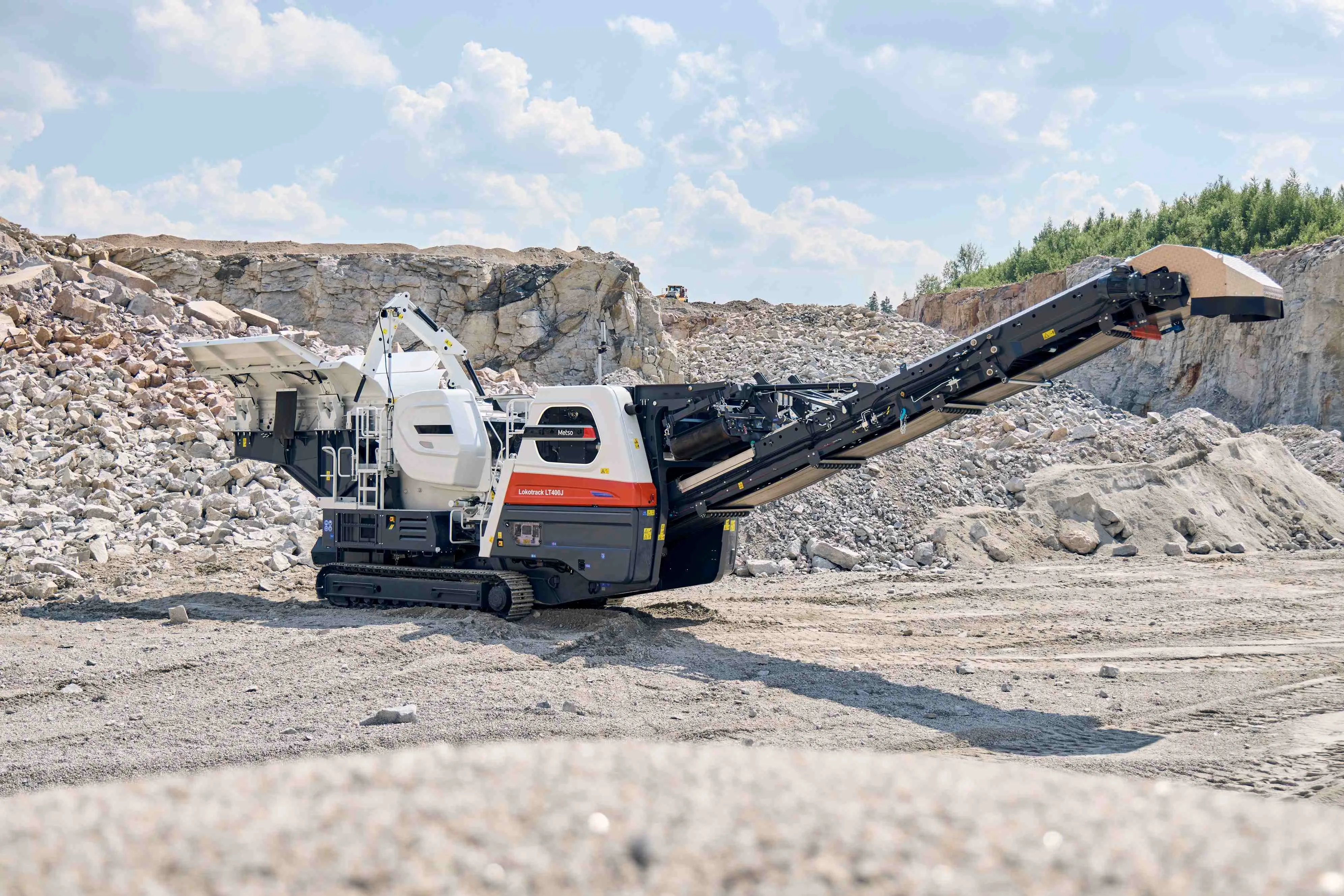A mobile crushing, screening and scalping train from Sandvik is playing a key role in ensuring that Welsh quarry business Mason Brothers meets customers’ demands.
Family business Mason Brothers Quarry Products has a long-standing relationship with Sandvik which goes back to the 1990s, said
Alun Mason, managing director
of Mason Brothers.
The wide range of products produced at the quarry ranges from type 1 sub-base to ornamental and building stone. The company also supplies volumetric concrete, concret
December 20, 2018
Read time: 2 mins

A mobile crushing, screening and scalping train from 325 Sandvik is playing a key role in ensuring that Welsh quarry business Mason Brothers meets customers’ demands.
Family business Mason Brothers Quarry Products has a long-standing relationship with Sandvik which goes back to the 1990s, said Alun Mason, managing director of Mason Brothers.
The wide range of products produced at the quarry ranges from type 1 sub-base to ornamental and building stone. The company also supplies volumetric concrete, concrete blocks, portable gabion baskets and drainage pipe. Mason Brothers can deliver materials both loose or bagged dependent on customer requirements and also now runs a nearby shale quarry.
“We run six tipper trucks out of the quarry and now produce over 100,000tonnes of mixed aggregates,” said Mason.
The rock at the quarry is a metamorphic granite - Royal Lite Hornfeldt - and although it breaks easily it is very abrasive, making it hard on equipment.
A key part of production is a crushing, screening and scalping train supplied by Sandvik Mobiles. This comprises of a QA451 triple deck Doublescreen, QH331 cone with hanging screen and currently a QE341 scalper with finger deck.
“Two boys run the complete quarry. They primary crush at face and then scalp off the material. We produce a 25mm-100mm cone feed from the face which we then stockpile at the rear of the cone crusher. This is then moved across the quarry with an excavator loading the cone for secondary crushing. This set-up enables the running of the entire quarry with just two men,” says Mason.
The QH331 cone crusher with hanging screen has proved to be particularly useful, he explains.
Family business Mason Brothers Quarry Products has a long-standing relationship with Sandvik which goes back to the 1990s, said Alun Mason, managing director of Mason Brothers.
The wide range of products produced at the quarry ranges from type 1 sub-base to ornamental and building stone. The company also supplies volumetric concrete, concrete blocks, portable gabion baskets and drainage pipe. Mason Brothers can deliver materials both loose or bagged dependent on customer requirements and also now runs a nearby shale quarry.
“We run six tipper trucks out of the quarry and now produce over 100,000tonnes of mixed aggregates,” said Mason.
The rock at the quarry is a metamorphic granite - Royal Lite Hornfeldt - and although it breaks easily it is very abrasive, making it hard on equipment.
A key part of production is a crushing, screening and scalping train supplied by Sandvik Mobiles. This comprises of a QA451 triple deck Doublescreen, QH331 cone with hanging screen and currently a QE341 scalper with finger deck.
“Two boys run the complete quarry. They primary crush at face and then scalp off the material. We produce a 25mm-100mm cone feed from the face which we then stockpile at the rear of the cone crusher. This is then moved across the quarry with an excavator loading the cone for secondary crushing. This set-up enables the running of the entire quarry with just two men,” says Mason.
The QH331 cone crusher with hanging screen has proved to be particularly useful, he explains.









